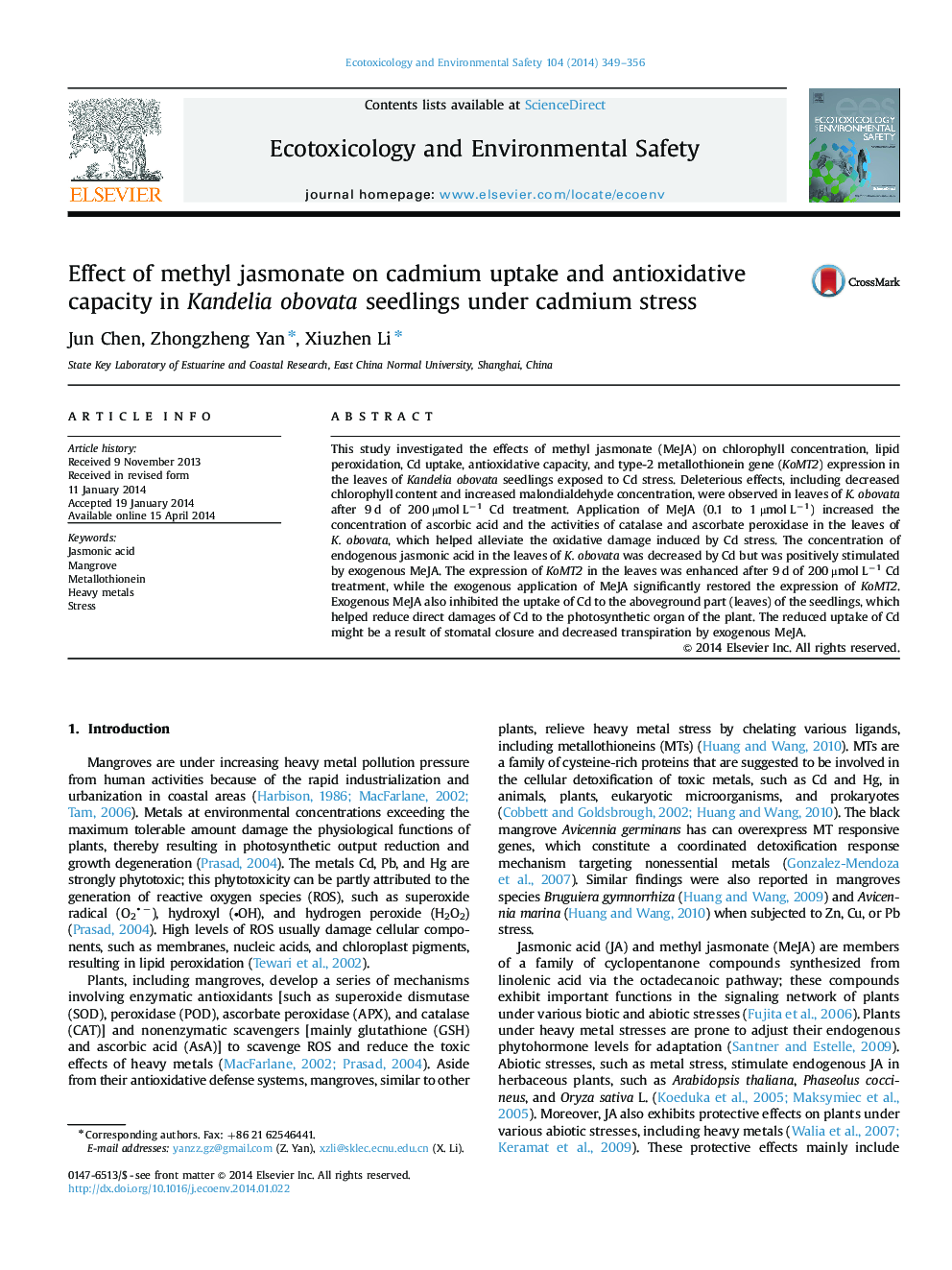| Article ID | Journal | Published Year | Pages | File Type |
|---|---|---|---|---|
| 4420181 | Ecotoxicology and Environmental Safety | 2014 | 8 Pages |
•Exogenous MeJA significantly reduced leaf MDA production induced by Cd.•MeJA significantly enhanced the activities of APX and CAT in leaves of Kandelia obovata.•Exogenous MeJA significantly inhibited the accumulation of Cd in leaves.•Leaf endogenous JA was decreased by Cd treatment but increased by exogenous MeJA.•Expression of leaf MT gene was enhanced by Cd while restored by exogenous MeJA.
This study investigated the effects of methyl jasmonate (MeJA) on chlorophyll concentration, lipid peroxidation, Cd uptake, antioxidative capacity, and type-2 metallothionein gene (KoMT2) expression in the leaves of Kandelia obovata seedlings exposed to Cd stress. Deleterious effects, including decreased chlorophyll content and increased malondialdehyde concentration, were observed in leaves of K. obovata after 9 d of 200 μmol L−1 Cd treatment. Application of MeJA (0.1 to 1 μmol L−1) increased the concentration of ascorbic acid and the activities of catalase and ascorbate peroxidase in the leaves of K. obovata, which helped alleviate the oxidative damage induced by Cd stress. The concentration of endogenous jasmonic acid in the leaves of K. obovata was decreased by Cd but was positively stimulated by exogenous MeJA. The expression of KoMT2 in the leaves was enhanced after 9 d of 200 μmol L−1 Cd treatment, while the exogenous application of MeJA significantly restored the expression of KoMT2. Exogenous MeJA also inhibited the uptake of Cd to the aboveground part (leaves) of the seedlings, which helped reduce direct damages of Cd to the photosynthetic organ of the plant. The reduced uptake of Cd might be a result of stomatal closure and decreased transpiration by exogenous MeJA.
